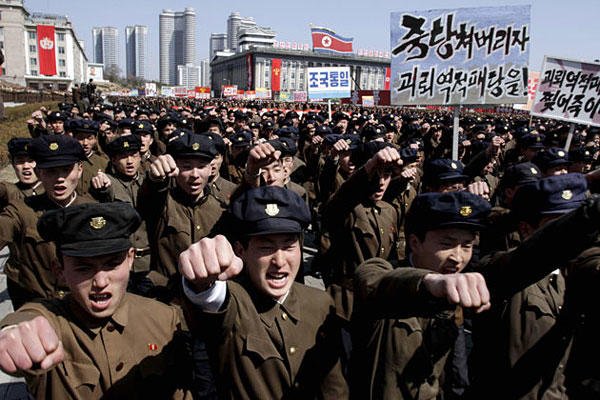The commander of U.S. forces in South Korea said he believes North Korea can miniaturize nuclear warheads, a key step in preparing a nuclear weapon for delivery by an inter-continental ballistic missile (ICBM).
"As a commander, I've got to assume they have that capability," Army Gen. Curtis "Mike" Scaparrotti, commander of U.S. Forces Korea and the Republic of Korea-U.S. Combined Forces Command, said of the North Koreans.
North Korea reportedly has been struggling in recent years to miniaturize a nuclear warhead and also to develop a reliable long-range missile to carry the weapon.
"I believe they have the capability to miniaturize the device at this point and they have the technology to potentially actually deliver what they say they have," Scaparrotti said.
However, he said the lack of adequate testing would make "the probability of its being effective pretty darn low."
At a later Pentagon briefing, Rear Adm. John Kirby, the Pentagon press secretary, said that Defense Secretary Chuck Hagel "shares the general's concerns about their (North Korea's) attempts to acquire this capability."
However, like Scaparrotti, Kirby couched his statement saying that "we have not seen evidence that they've done it."
Scaparrotti's trip to Washington came as the U.S. and South Korea agreed to delay indefinitely the plan that would have transferred operational control of South Korea's forces in the event of war to a South Korean general in 2015.
Under the current arrangement, Scaparrotti would be in control of both U.S. and South Korean forces should North Korea attack.
Scaparrotti declined to speculate on when the transfer of operational control would take place, but South Korean newspapers said it might not happen until 2025.
When the transfer does occur, Scaparrotti said that a four-star South Korean general would be in charge and a four-star U.S. general would be the deputy commander but still maintain operational control of U.S. forces within the combined command.
-- Richard Sisk can be reached at Richard.Sisk@military.com






























